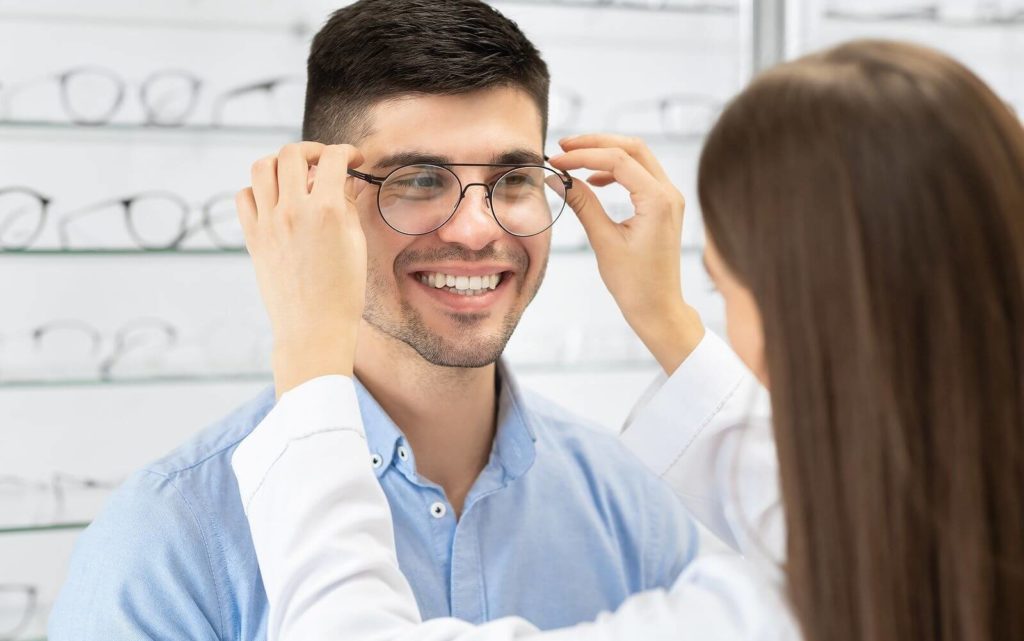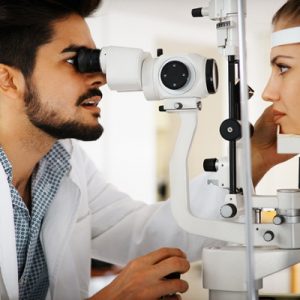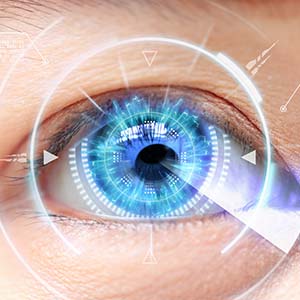According to The Vision Council, about 75% of all people use some sort of vision correction.
Getting glasses, regardless of age, indicates that your vision is changing. Nearsightedness, farsightedness, and astigmatism are the most common reasons for children and adults around the world to wear glasses.
Why do I need eyeglasses?
Any refractive error in your eyes prevents light from being focused directly on the retina and causes blurry vision.
Over 50% of all people will develop a refractive error at some point in their life and will require corrective lenses, such as glasses or contact lenses, to help them see clearly.
Any visual problem causes your vision may be hazy or doubled, you may also experience eye strain or headaches; and you may find it impacts your daily life and activities such as driving, reading, using a computer or enjoying your favorite hobbies.
Nearsightedness, or myopia, is one of the most frequent refractive defects, and it usually starts in childhood. Presbyopia, or age-related farsightedness, affects the majority of middle-aged adults after the age of 40.
Some inaccurate perceptions about how glasses operate have persisted, potentially causing needless suffering.
Do eyeglasses weaken my eyes?
There are two common misconceptions concerning glasses that must be debunked.
Wearing eyeglasses does NOT weaken the eyes
Some people feel that ‘pushing’ the eyes to concentrate without help strengthens the muscles around the eyeball and slows the progression of refractive errors. This is not the case.
Without clear vision, eye strain and fatigue can result, which can affect work productivity for adults and exacerbate behavioral problems, ADHD and learning difficulties among children.
Glasses add a refraction level to the image processed by your brain to adjust for the lenses inside your eyes.
Wearing the wrong prescription CAN impact the eyes
Adapting to new glasses can take a few days or weeks.
After a few weeks, if you still can’t see clearly through your glasses or your vision is not comfortable, your prescription may be too weak or too strong. This occurs from time to time and might result in headaches, eye strain, and fatigue.
For adults, wearing the wrong prescription could impact your office performance and even lead to headaches or migraines.
For children, wearing the wrong prescription can accelerate the progression of a refractive error, therefore it’s critical to have the most accurate lens prescription possible.
SEE RELATED: Guide to Optical Lenses
Contact an eye doctor near you to learn more about how glasses can help with vision problems.
Why are glasses associated with worsening vision?
Many people feel that wearing glasses may worsen your reading prescription or force the child to become more myopic (short-sighted).
Lets look at each of these:
Reading glasses
Wearing reading glasses does not worsen presbyopia, or age-related farsightedness.
Some people believe that wearing glasses causes muscle atrophy around the eyes, and that pushing your eyes to focus without glasses, or with a lower prescription than you require, can prevent refractive problems from worsening.
Despite the fact that this is an inaccurate association, the misunderstanding makes sense.
The natural lens of the eye can change shape to modify the amount of light that reaches the retina, and the shape of the lens is influenced by zonules, which are flexing ligaments.
It’s tempting to imagine that working out these lens zonules and ciliary muscles around your eyes can help you see better for longer, but this isn’t the case.
Permanent alterations in the lens shape have a bigger impact on visual acuity, and exercising these muscles will not be able to reshape the lens sufficiently to see properly.
Myopia
Children wearing the wrong prescription have shown to cause an increase in myopia.
Research clearly shows that children who do not have adequate corrective wear, might increase the progression of myopia, if they are forced to squint at distant objects.
A child’s myopia will increase over time, based mainly on genetics and environmental factors. A child’s refractive error does not worsen whether they wear glasses or contact lenses, but could worsen without wearing the correct prescription.
If a child’s myopia is worsening, a treatment program known as Myopia Management might be the solution.
LEARN MORE: Optical and Contact Lenses
Schedule an appointment with an eye doctor near you to make sure your and your child’s prescription is up-to-date.
Over half of all people need eyeglasses to see clearly.
Don’t worry wearing glasses will not weaken your eyes. But, wearing the wrong prescription could be more detrimental to your vision and significantly impact your life.










